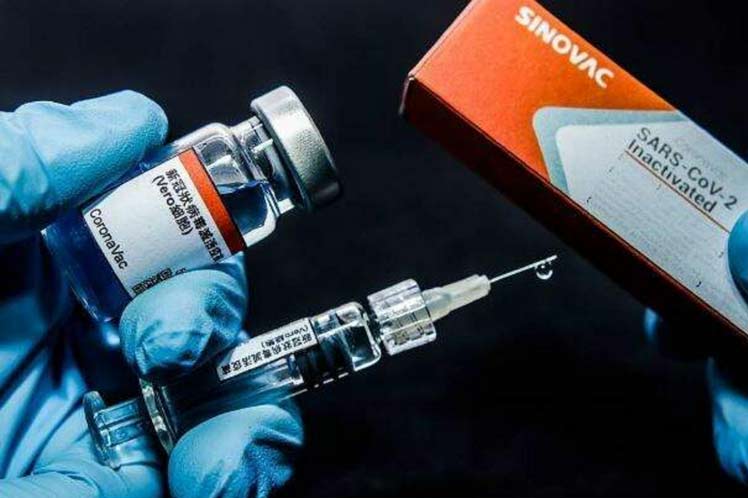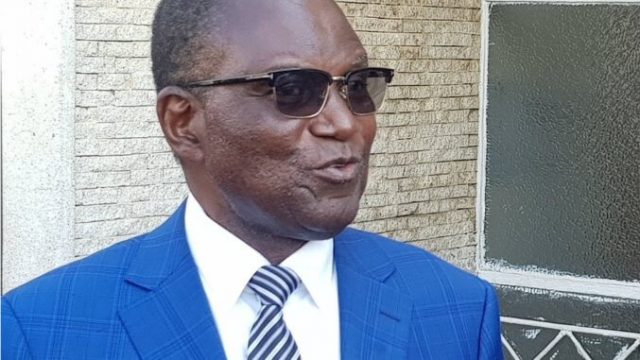The World Health Organization (WHO) and immunization experts in the African Region have called on countries and health stakeholders to prioritize immunization services – which have been disrupted by the COVID-19 pandemic – in order to protect children and communities from vaccine-preventable diseases.
The call came from the African Regional Immunization Technical Advisory Group (RITAG), which convened virtually from 18-19 November 2020 to discuss the status of immunization in the region as well as preparedness for a future COVID-19 vaccine.
The RITAG serves as the principal advisory group to the WHO on immunization policies and programmes in the African Region.
“COVID-19 has disrupted the delivery of essential health services, including routine immunization.
This puts people at risk of vaccine-preventable diseases and threatens the gains we have made to date. As we prepare for a COVID-19 vaccine, we must ensure that the life-saving vaccines we already have reach those most in need,” said Dr. Matshidiso Moeti, WHO Regional Director for Africa.
In 2019, immunization coverage in the African region stagnated at 74% for the third dose of the diphtheria-tetanus-pertussis containing-vaccine (DTP3), and at 69% for the first dose of the measles vaccine – far below the regional target of 90%.
These gaps in coverage have been exacerbated in 2020 by the COVID-19 pandemic, putting millions of children at risk for deadly diseases.
For example, an additional 1.37 million children across the African region missed the Bacille Calmette-Guerin (BCG) vaccine which protects against Tuberculosis and an extra 1.32 million children below the age of one missed their first dose of measles vaccine between January and August 2020, when compared with the same period in 2019.
Immunization campaigns covering measles, yellow fever, polio and other diseases have been postponed in at least 15 African countries this year.
In light of these circumstances, RITAG members stressed the urgency of resuming routine immunization services, while following WHO guidelines for planning and implementing catch-up immunization, and adhering to strict COVID-19 prevention protocols.
“Collective action to strengthen immunization is needed, now more than ever, as we approach the end of the Decade of Vaccines and COVID-19 limits access to essential health services across Africa,” stated Professor Helen Rees, Chair of the RITAG.
Experts attending the meeting also discussed the need for countries to lay the groundwork for the introduction and delivery of an eventual COVID-19 vaccine, as an urgent priority.
RITAG members urged WHO and partners to engage all relevant stakeholders in the vaccine preparedness process, including national leadership.
While research and development for a COVID-19 vaccine advances at an unprecedented pace, WHO has established the African COVID-19 Vaccine Readiness and Deployment Taskforce (ACREDT), which will work to assist countries in the region in planning for vaccine introduction, including obtaining regulatory approvals, and defining priority groups and delivery strategies.
In addition, WHO is collaborating with Gavi, the Vaccine Alliance and the Coalition for Epidemic Preparedness Innovations (CEPI) to co-lead the COVAX Facility – a global risk-sharing mechanism for pooled procurement and equitable distribution of eventual COVID-19 vaccines.
COVAX has already engaged 186 countries worldwide – including all 47 countries in the African Region – and aims to deliver 2 billion doses globally for high-risk populations by the end of 2021, including 1 billion doses for low and middle-income countries.
Despite significant challenges in the past year, the RITAG also noted key achievements, including the ending of the eleventh Ebola outbreak in the Democratic Republic of the Congo and the eradication of wild poliovirus in the African Region.
RITAG members commended this historic milestone but cautioned that sustained efforts are needed to end polio, as 17 countries in the region have reported outbreaks of circulating vaccine-derived poliovirus type 2 (cVDPV2) this year.
The RITAG called for coordinated action to avert future outbreaks by maintaining strong surveillance, improving immunization coverage, introducing the novel oral polio vaccine type 2 (nOPV2), implementing effective emergency response procedures, and ensuring that communities have adequate water and sanitation.
“Current outbreaks of vaccine-preventable diseases are an apt reminder of the work that remains to be done,” said Dr. Richard Mihigo, Programme Manager for Vaccine-Preventable Diseases at the WHO Regional Office for Africa. “How we respond to these outbreaks amid the COVID-19 pandemic will be critical to protecting children and communities, and to preventing further disease outbreaks.”
At the end of the two-day meeting, the RITAG shared recommendations to advance immunization goals in the African Region, for the WHO Regional Director’s consideration. The RITAG will reconvene in six months to evaluate progress.
-Report by World Health Organisation Africa




